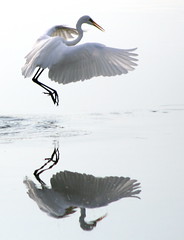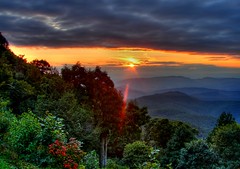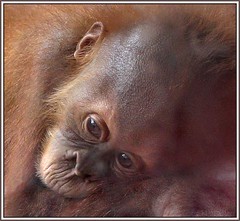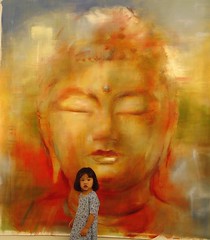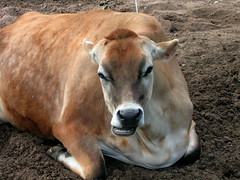“The door to God is the insecurity of not knowing anything.
Bear the grace of that insecurity, and all wisdom will be yours.”
Adyashanti
For “She Who Fell into the River and was Swept into the Ocean”-
I said she fell into the “Wu” just to have a name for what had befallen her: this state of extreme Yin and openness that made her drop obligations and ultimately her job. She said she no longer wanted to think too much. She could not resist the pull of the river. And as the months passed the river became an Ocean, an Ocean she recognized as love. To her friends if felt like she was “going to leave town” or “move away.” Yet she had no plans to do so. She had few if any plans- except to buy a boat and learn to really sail. What an embodying of metaphor! Now, she says, she doesn’t know a thing. But, she has found a partner of utter solidity, someone to keep some ground under her. And recently she sailed that new boat of hers at over 5 knots, approaching the limits of hull speed.
This seems a gentle version of an enlightenment experience. One that wasn’t fought that much. To a large extent thinking was given up. Fears were faced and not allowed to impede the flow. And so process could proceed in a relatively gentle manner.
Adyashanti has some teachings that seem to relate to this experience:
At the moment of enlightenment everything falls away- everything. Suddenly the ground beneath you is gone, and you are alone. You are alone because you have realized that there is no other; there is no separation. There is only you, only Self, only limitless Emptiness, pure Consciousness.
To the mind, the ego, this appears terrifying. When it looks at limitlessness and infinity, it sees meaninglessness and despair. However, the view changes to unending joy and wonder once the mind is let go of.
Sunday, October 29, 2006
Spiritual Emergence
What it takes
Adyashanti sets out the dynamics this way:
Many people really see themselves as “the one who has struggled”… Others struggle to hold onto a more positive, fixed identity as a good, successful, or spiritual person. However, most people cling to both negative and positive self-images… [T]he reason that you struggle is in order to maintain a sense of separate self, a self which is ultimately a defense mechanism against the revelation that no separate self actually exists. As soon as you stop struggling, you lose the boundaries…with nothing to oppose, the false sense of self evaporates into nothingness, into the Unknown… Your identity is cut loose from all that is familiar and known and you find yourself floating in a vast expanse with nothing to grab hold of. This groundless expanse is the foretaste of liberation, but few choose to remain in this unknown territory…
Faced with a freedom that is absolute, a freedom that leaves no room for separation from the whole, most people will compulsively contract back into a condition of struggle where they can maintain a familiar sense of self. …
It is only when you desire to be free more than you desire the security of the familiar sense of self that you spontaneously move into a freedom that is final and beyond struggle….
This is not the liberation that most people envision when they start out… most people envision a freedom that they can attain and possess. So many who glimpse the enlightened condition tell me that is so much bigger than they ever could have imagined. [When you] realize that freedom [it] is not something that you possess, but something that possess you…
To have a glimpse of this profound freedom requires very little, but to live it requires the destruction of every concept of self you ever held or will ever hold. This freedom is a flame that burns the need to struggle to ash and reveals one’s Self to be all that is.
Wednesday, October 18, 2006
For Chris and Olga
Olga passed last night, the mother of my dear friend, Chris. Olga had two daughters and each was by her side as she lay at peace. Olga was Ukrainian. Her husband (also from the Ukraine) preceded her in death by thirty years, almost to the day. So with a bow to these dear women and all that lived between them, I offer these notes... not speaking of them directly- but rather the poet laureates Jane Kenyon and Donald Hall. Why these two? Because they're poets and they lived and loved and poetry speaks better than mere words at a time like this.
Twilight: After Haying
by Jane Kenyon
Yes, long shadows go out
from the bales; and yes, the soul
must part from the body:
what else could it do?
The men sprawl near the baler,
too tired to leave the field.
They talk and smoke,
and the tips of their cigarettes
blaze like small roses
in the night air. (It arrived
and settled among them
before they were aware.)
The moon comes
to count the bales,
and the dispossessed--
Whip-poor-will, Whip-poor-will
--sings from the dusty stubble.
These things happen. . .the soul's bliss
and suffering are bound together
like the grasses. . .
The last, sweet exhalations
of timothy and vetch
go out with the song of the bird;
the ravaged field
grows wet with dew.
Finding A Long Gray Hair
by Jane Kenyon
I scrub the long floorboards
in the kitchen, repeating
the motions of other women
who have lived in this house.
And when I find a long gray hair
floating in the pail,
I feel my life added to theirs.
Jane Kenyon was an American poet and translator. She was born in 1947 in Ann Arbor, Michigan, and grew up in the midwest. While a student at the University of Michigan, Kenyon met the poet Donald Hall; though he was some twenty years her senior, she married him in 1972, and they moved to Eagle Pond Farm, his ancestral home in New Hampshire. Kenyon was New Hampshire's poet laureate when she died in April of 1995 from leukemia. Hall currently is the US Poet Laureate. Without: Poems was published on the third anniversary of Jane Kenyon's death. Most of the poems in Without deal with Kenyon's illness and death, and many are epistolary.
Tuesday, October 17, 2006
It’s as simple as this:
Teacher: And what happens if you attend to the Silence?
Student: It becomes more intense, the Silence and the Gap become absurd, and laughter begins. There is this incredible laughter.
Teacher: And who is laughing?
Student: I am laughing deep inside. And the Universe is laughing.
Teacher: And?
Student: And it is the same laughter … There is only one person laughing. The Universe and I are one.
(and now in tears, the student gets it. I just hadn’t ever noticed)
Remaining Awake
So, it’s not a lack of experience, an “awakened” experience you could say, that seems to be the difficulty. There are… OK- I’ll say it, “I have plenty of experiences.” But they are just beads on a string; moments strung on a thread of feeling very unenlightened that seem to hang around my neck the way you might hang a placard on the school dunce.
I am not alone in this I think. Or to quote Ram Das, “If you think you’re so enlightened go spend a week with your parents.” It’s a funny joke until I realize many/most of us are now reaching that age where “parents” has become the single “parent.” And Chris is sitting by her mother's bedside this very moment.
We are no longer thirty some-things, still hip to our college trip.
There are thousands of us out there now who have meditated for decades, and where has it got us?
Times up! The World is teetering. It's now or never or next life time.
So, what’s the problem here? Perhaps it’s what Adyashanti calls embodying enlightenment. Get the experience out of the head perceived by the intellect, and start to live it from the heart and belly. Getting out of the head means letting go of ego that little prodder of the mind into business.
It’s here that Eckhart Tolle’s teaching can be of great help. For where we get thrown off is by emotional pain "resentment, hatred, self-pity, guilt, anger, depression, jealousy and so on, even the slightest irritation." The pain is "always some form of non-acceptance, some form of unconscious resistance to what is." This resistance takes the form of judgmental thoughts and is accompanied by emotional pain.
What is Tolle's solution to this self-inflicted pain? "Realize deeply that the present moment is all you ever have… Always say 'yes' to the present moment.” Or an excellent corollary, “Whatever the present moment contains, accept it as if you had chosen it." When you accept the present moment as it is, resistance to or denial of it becomes impossible. That is, you have to feel. You begin to burn up what Tolle calls the pain body. You begin to embrace your own shadow. You leave your head and start to live from heart and belly.
Actually, given that awakening often starts in the head with witnessing, or Silence, or what Tolle calls Presence, incredibly facilitates implementing the practice of staying in the present and experiencing what’s really going on in the body (heart and belly). I emphasize here too the word “Really.” Implementing this practice day to day requires dedication to the Truth- wanting to know what’s really going on inside, even if it hurts. And in this way Tolle’s teaching meshes perfectly with Adyashanti’s.
This Moment: October 17th, 2006.
Today would have been our 19th anniversary. Instead we shared a phone call that lasted something under three minutes. I am also waiting to hear from a dear friend who is sitting by the bedside of her 90 year old mother. When will Olga pass? And to add to this, the day is once again and even more so- rainy.
Still, I am dry and rather cozy here at work. But I find that today is a day that seems to emphasize that “Knowledge resides from the neck up, wisdom from the neck down.” (Adyashanti)
I work mechanically today and cannot bare the intellectually exciting. It seems a time to live from the neck down. Not that I feel at all that wise, but rather today I choose to feel. Let me get my information that way today.
So, I went hunting poems. I found these two by Jane Hirshfield. The first gives a nod to the whole yin yang of creation. The later simply gives me faith to keep on walking.
Poem With Two Endings
Say "death" and the whole room freezes--
even the couches stop moving,
even the lamps.
Like a squirrel suddenly aware it is being looked at.
Say the word continuously,
and things begin to go forward.
Your life takes on
the jerky texture of an old film strip.
Continue saying it, hold it moment after moment inside the mouth,
it becomes another syllable.
A shopping mall swirls around the corpse of a beetle.
Death is voracious, it swallows all the living.
Life is voracious, it swallows all the dead.
neither is ever satisfied, neither is ever filled,
each swallows and swallows the world.
The grip of life is as strong as the grip of death.
(but the vanished, the vanished beloved, o where?)
Optimism
More and more I have come to admire resilience.
Not the simple resistance of a pillow, whose foam returns over and over to the same shape, but the sinuous tenacity of a tree: finding the light newly blocked on one side,
it turns in another.
A blind intelligence, true.
But out of such persistence arose turtles, rivers, mitochondria, figs--all this resinous, unretractable earth.
Here's one more poem, as I cannot resist. This one tucks you in and brings you home to silence, which is where you eventually come to rest, if you choose to stay right in the moment.
Recalling A Sung Dynasty Landscape
Palest wash of stone-rubbed ink
leaves open the moon: unpainted circle,
how does it raise so much light?
Below, the mountains
lose themselves in dreaming
a single, thatch-roofed hut.
Not that the hut lends meaning
to the mountains or the moon--
it is a place to rest the eye after much traveling, is all.
And the heart, unscrolled,
is comforted by such small things:
a cup of green tea rescues us, grows deep and large, a lake.
Thursday, October 12, 2006
Litany
Wouldn’t you know, I couldn’t even find a poem that I liked. Then I came across this one by Billy Collins, the U.S. Poet Laueate. I really liked the poem. It made me feel better. And for the life of me, I couldn’t explain it to you. Why I felt better or what the poem means. So, I Googled a bit. Turns out Jacques Crickillon is a Belgian poet. He’s written a poem that begins, “You are the bread and the knife.” But, enough clues for now.
Litany
You are the bread and the knife,
The crystal goblet and the wine...
-Jacques Crickillon
You are the bread and the knife,
the crystal goblet and the wine.
You are the dew on the morning grass
and the burning wheel of the sun.
You are the white apron of the baker,
and the marsh birds suddenly in flight.
However, you are not the wind in the orchard,
the plums on the counter,
or the house of cards.
And you are certainly not the pine-scented air.
There is just no way that you are the pine-scented air.
It is possible that you are the fish under the bridge,
maybe even the pigeon on the general's head,
but you are not even close
to being the field of cornflowers at dusk.
And a quick look in the mirror will show
that you are neither the boots in the corner
nor the boat asleep in its boathouse.
It might interest you to know,
speaking of the plentiful imagery of the world,
that I am the sound of rain on the roof.
I also happen to be the shooting star,
the evening paper blowing down an alley
and the basket of chestnuts on the kitchen table.
I am also the moon in the trees
and the blind woman's tea cup.
But don't worry, I'm not the bread and the knife.
You are still the bread and the knife.
You will always be the bread and the knife,
not to mention the crystal goblet and--somehow--the wine.
Isn’t that a nice poem? It makes me smile. I can relate to the voice. … Then, I found this commentary on the Web, “An absolute masterpiece of poetic demystification. Takes the wind and bluster and pomposity out of the pretentious sails of most other poets.”
And then I knew why I liked it so much. Recently, the teachings of Adyashati have taken the wind and bluster and pomposity out of my own pretentious self. The demystification of the mystic. It is not that comfortable. It is also not that bad, and certainly very necessary. And when I figure out how to offer new commentary with no wind in my sails I’ll make more frequent postings.
(Or more probably, I’ll just re-inflate eventually…cause that’s what egos do.)
Thursday, October 05, 2006
Ruminations
“The biggest barrier to awakening is the belief that it is something rare. When this barrier is dropped, or at least you start to tell yourself, I don’t really know if my belief that awakening is difficult is true or not, then everything becomes instantly available to you. Since this is all that exists, it can’t be rare and difficult unless we insist it is.”
Student: Letting go of our egocentricity so we can experience awakening- do you suppose it is peeled off us the way we peel an orange?
Adya: Peeling is like having a dream at night in which you dream you are going to a therapist, and you start feeling better, and you feel like you are getting somewhere. Awakening is as if you are sitting on the couch telling your story, and you are still a mess… Then all of a sudden you realize this is a dream, this isn’t real, you’re making it up. That’s awakening…But the awakeness in you is not dreaming. Only the mind is dreaming. It tells itself a story and wants to know if it is progressing… when you realize it’s all stories, there can be this vast waking up out of the mind, out of the dream. You don’t awaken, what has eternally been awake realizes itself.
“It’s not something you prepare for or earn or deserve. Awakening is a radical shift in identity. You think you’re you, but you’re not. You are eternal being. The time to wake up is now.”
Student: I want it so badly that I’ll give up anything for it.
Adya: Are you willing to give up pretending you don’t already have it?
Student: Why don’t more people become enlightened?
Adya: Because they are still finding entertainment in the dream to some extent.
So end the lessons.
I have always believed in the “peeling” theory. I presumed the serious seeker is willing to dedicate life and lifetime to getting there. And along the way, you’ll get mellower and mellower. I’ve equated “spiritual cultivation” with a cultivation of both mind and body. Ideally, you’ll do something to get to know your shadow and clean up your psychological baggage. You’ll also change your physiology. Just about every spiritual path speaks of “purification.” Be it sweat lodge, yoga, fasting… you work at detoxification and strengthening the body.
So, have I been mistaken? Can it be that quick? Well, for the past few years I have been examining my beliefs that enlightened: 1) is a rare event, 2) is too good to be true or ever happen to me, or 3) “Oh my God, what is happening now?”- (extreme incredulity of direct experience). I find that each of these beliefs merely serve to disrupt and destabilize any awakening I am experiencing. So, I am more open to the possibility that awakening can occur in a flash, than I have been in the past.
Still, even Adyashanti suggests that some preparation is required. He speaks of readiness:
“Readiness is the key to awakening. Anyone can have a glimpse of awakening, but only those who are ready for it will remain awake. Readiness means that we are no longer addicted to attachment, desire, and aversion. It means that we are truly willing to perceive and live from a completely new paradigm. It means that the truth is more important than anything else in life.”
Now I’m wondering if “remaining awake” is actually the real trick?
And if so, what does this entail?
